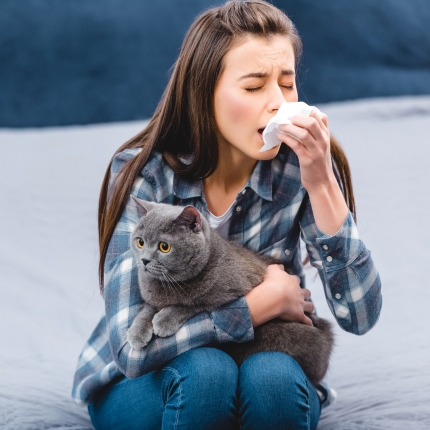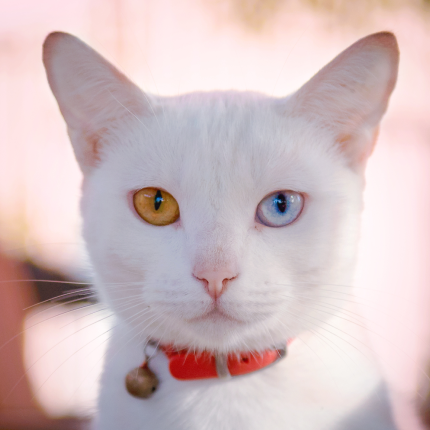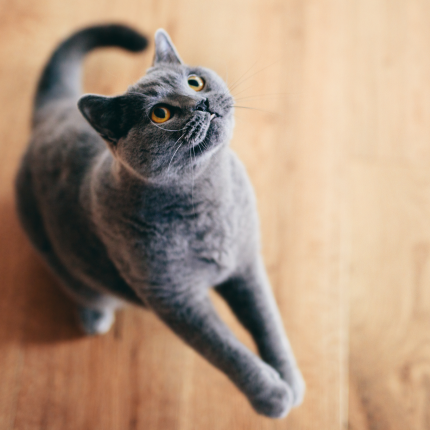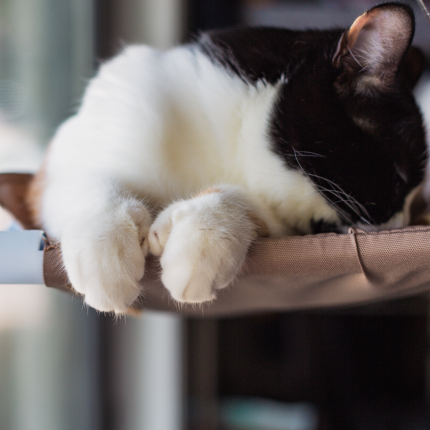Do Hypoallergenic Cat Breeds Really Work?

Millions of people in the United States love cats but are unable to have one because of allergies. Many people who suffer from allergies hear about hypoallergenic cats and think getting one will be the solution.
advertisement
Are Some Cat Breeds Better for Allergies than Others?
People who suffer from cat allergies react to the Fel D 1 protein found in cats’ saliva, skin, and urine. After your cat licks himself, the Fel D 1 protein becomes airborne, and you breathe it in. Both Siberian and Balinese cats have less Fel D1 protein, which means they are a better choice for people who suffer from cat allergies.
Other cat breeds that are labeled as hypoallergenic and better for people with allergies are:
- Russian Blue
- Bengal
- Sphynx
- Cornish Rex
- Devon Rex
- Oriental Shorthair
If you have an allergy to cats and are looking to welcome one into your home, you should look for a cat that has short fur. The less fur your cat has, the less of the Fel D1 protein they produce by licking themselves.
Other anecdotal evidence suggests that males produce more Fel D1 protein than females, cats with dark fur produce more protein, and kittens produce the least Fel D1 protein of any cat.
This isn’t entirely proven yet, but if you have a cat allergy, a short-haired, light-colored female may be the best choice for you.
Can I Stop My Cat from Producing Fel D1 Protein?
There is preliminary evidence that incorporating eggs with the IgY antibody in them decreases your cat’s production of the Fel D1 protein by 97%.
The problem is that eggs don’t naturally contain the IgY antibody needed to reduce your cat’s saliva production.
So scientists genetically modified the egg to have the antibody.
As of right now, you can’t do anything to reduce the amount of Fel D1 protein your cat produces, but that might change in the future if scientists can mass-produce a food source that decreases your cat’s saliva production.
Can I Stop Being Allergic to Cats?
Not yet, but scientists are working on different ways to prevent the Fel D1 protein cats produce from affecting humans.
A vaccine containing purified cat allergens is in phase II of clinic trials and shows a 70% effective rate.
There is no data yet on how long the vaccine lasts, but it is a promising step for people wanting to own cats but have allergies.
advertisement
Conclusion
Sadly, the conclusion of the conversation around whether hypoallergenic cat breeds exist or not is no, they do not, but there is hope for the future.
If you have mild cat allergies, you may find you’re less bothered by female cats with light, short fur. You may even be able to find one that doesn’t bother your allergies and be able to welcome him into the family.
If, however, you have severe cat allergies; unfortunately, no cat will work for you. This is because all cats produce some amount of the protein humans are allergic to.
Until science catches up and can either drastically lower cats’ production of the Fel D1 protein or there is a vaccine against the Fel D1 protein for humans, you’ll have to admire cats from afar.

Featured Articles

The Odd-Eyed Cat (AKA Heterochromia)
Cats are already beautiful and fascinating creatures, but people are bound to take notice when they have something as captivating as two different colored eyes. Odd-eyed cats always have one blue eye paired with either a green, yellow, or brown eye. This form of heterochromia occurs in other animals, including…

Why Do Cats Roll Over Into Their Backs But Not Let You Touch Their Bellies?
It’s common knowledge dogs love to have their tummies rubbed when they freely lay down before you and roll onto their backs. But, if you’re also familiar with cats, you know that when they roll onto their backs with their bellies exposed, rubbing the belly will most likely result in…

Greebles and Cats: The Origin and the Meaning
You may have seen an internet sensation concerning cats labeled “greebles.” Feel out of the loop? We’re here to help you. In 2019, Reddit user /user/literallyatree commented on a Reddit post about a cat that looks like it’s trying to slap a ghost. This user commented: “My family calls things…
